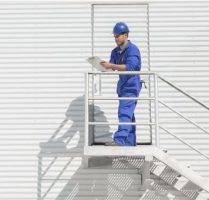October 12, 2016
Majority of workers believe their workplace is making them ill 0
 A huge number of employees (87 percent) blame their workplace for making them ill, with only 25 percent saying they feel healthy at work on a regular basis, claims a new survey from Healthcare provider Benenden. In addition, half of those surveyed (50 percent) said they felt depressed at work, with just 40 percent admitting they are happy in their place of work. The survey of 2,000 employed people reveals that nearly half of workers still go into work, despite being ill. And whether ill or not, once in work, those surveyed confessed to having regular health issues, with backache (84 percent) eye strain (42 percent) and regular migraines (27 percent) all being part of working life. In addition, just under half of respondents (at 44 percent), reported being regularly stressed at work, with a further 91 percent feeling tired several times a week at their desk. Nearly two thirds of workers (58 percent) said that work worries keep them awake at night.
A huge number of employees (87 percent) blame their workplace for making them ill, with only 25 percent saying they feel healthy at work on a regular basis, claims a new survey from Healthcare provider Benenden. In addition, half of those surveyed (50 percent) said they felt depressed at work, with just 40 percent admitting they are happy in their place of work. The survey of 2,000 employed people reveals that nearly half of workers still go into work, despite being ill. And whether ill or not, once in work, those surveyed confessed to having regular health issues, with backache (84 percent) eye strain (42 percent) and regular migraines (27 percent) all being part of working life. In addition, just under half of respondents (at 44 percent), reported being regularly stressed at work, with a further 91 percent feeling tired several times a week at their desk. Nearly two thirds of workers (58 percent) said that work worries keep them awake at night.


































October 4, 2016
Motherhood or livelihood? Pregnancy discrimination in the workplace 0
by Tar Tumber • Comment, Legal news, Wellbeing, Workplace
Recent research by the Commons Women and Equalities Committee suggests that around 54,000 expectant and new mothers have no choice but to leave work due to pregnancy discrimination or concerns over the safety of their children; and shockingly, this figure has doubled in the last decade alone. Other research carried out by the Equality & Human Rights Commission (EHRC) and the former Department for Business, Innovation and Skills shows that despite 77 percent of working mothers reporting potentially discriminatory or negative experiences, only 28 percent raised the issue with their employer, and less than 1 percent pursued a claim through the tribunal system. As a mother of two young children, this is a topic very close to my heart. I have worked in HR for over 18 years now, and advised on all manner of employee relations issues and know from personal experience that being pregnant and suffering discrimination or redundancy is not at all unusual.
(more…)